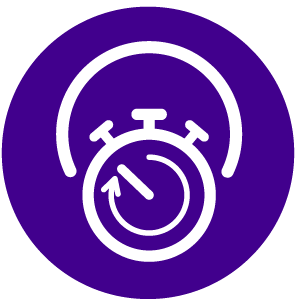Amazon RDS (Relational Database Service)
Configure, operate, and scale cloud databases with Amazon RDS. Efficiency, security, and automated data management at your fingertips.
What is Amazon RDS and how does it work?
Amazon RDS (Amazon Relational Database Service) is a cloud-based relational database service that simplifies the setup, management, and scaling of databases for web and mobile applications. It provides a managed environment for databases such as MySQL, PostgreSQL, Oracle, SQL Server, and MariaDB.
The operation of Amazon RDS is quite straightforward:
- Selecting a Database Engine: First, you choose the database engine you prefer to use (MySQL, PostgreSQL, etc.).
- Instance Configuration: You configure the database instance capacity according to your application’s needs, choosing from different instance classes and storage sizes.
- Automated Management: Amazon RDS handles database administration tasks such as hardware provisioning, database setup, software patching, and backups.
- Scalability: You can scale the processing power or storage of your database with just a few clicks or automatically, depending on your growing needs.
- Access and Security: Network and firewall configurations are set up to control database access, and integrated AWS services can be used to enhance security and compliance.
With Amazon RDS, businesses can operate their databases more efficiently and securely, reducing the time spent on administrative tasks and allowing developers to focus on innovating and improving applications.
What are the main advantages of using Amazon RDS?
Amazon RDS offers several key advantages that make it an attractive option for managing relational databases in the cloud, thanks to its focus on automation and optimization of database management processes.
Simplified management
Simplified Management: Amazon RDS automates administrative tasks such as hardware provisioning, database setup, patching, and backups, allowing developers to focus on the application rather than database management.
Scalability
It offers the flexibility to scale the computational or storage resources associated with your databases without downtime. This includes both vertical scaling (switching to larger instances) and horizontal scaling (increasing storage).
High availability
RDS makes it easy to set up replication across multiple availability zones for disaster recovery and automatic failover, enhancing the availability and durability of your databases.
Robust security
It includes built-in security controls such as data encryption at rest and in transit, isolated networks, and detailed access control through AWS Identity and Access Management (IAM).
Optimized performance
Amazon RDS is optimized for its specific database engine, allowing for high levels of performance and efficiency.
Compatibility
It supports multiple database engines, allowing users to choose the technology that best fits their needs, including popular versions like MySQL, PostgreSQL, MariaDB, Oracle, and SQL Server.
Is Amazon RDS suitable for businesses of any size?
Yes, Amazon RDS is suitable for businesses of any size, from startups to large corporations. The flexibility and scalability of Amazon RDS allow it to adapt to the specific needs of any business, regardless of its size.
For small businesses, RDS can help reduce initial and management costs by eliminating the need to invest in physical infrastructure and dedicated database administration staff. For larger companies, it offers the ability to handle large volumes of data and traffic with configuration and optimization options that support complex operations and high-performance demands.
Additionally, Amazon RDS’s ability to integrate with other AWS services facilitates expansion and continuous growth, making it a robust and versatile solution for any business seeking efficiency and scalability in database management.
Clouxter in Numbers: Milestones and Expertise
Professionals in Cloud Adoption and Consolidation
600+
Cloud Projects
Implemented
100+
AWS Technical Certifications
100k
Specialized technical execution hours
300+
Companies of All Industries and Sizes Supported
USD $1MM+
Delivered in Co-Investment
Programs
How Can Clouxter Help You?
As a leader in Cloud consulting services and an AWS Advanced Consulting Partner, Clouxter is proud to offer comprehensive services for Cloud adoption and consolidation.
With over 600 successfully implemented projects and a highly certified team, we have accumulated thousands of hours of technical experience to ensure that your business maximizes the benefits of Cloud solutions

Professional Services
Cloud Solutions Implementation and Availability of Specialists

Managed Services
Comprehensive 24×7 Cloud Infrastructure Management for Workloads

Financial Services
Local Currency Billing for Cloud Consumption
We Are an AWS Solution Provider


What Our Customers Are Saying
Discover What Our Clients Are Saying About Clouxter: Transformative experiences, customized cloud solutions, and an unwavering commitment to excellence. The success stories speak for themselves: enhanced efficiency, strengthened security, and sustainable growth, all thanks to our dedication and expertise in cutting-edge technologies.
We’re Ready to Help Your Business!
We Want to Hear About Your AWS Cloud Challenges and Needs! Share your details with us, and we’ll get in touch with you.






